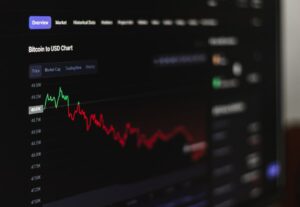The Impact of Market Volatility on Forex Spreads: What You Need to Know
Forex trading is a dynamic and fast-paced market where currencies are bought and sold. One of the key factors that traders need to consider is market volatility, which can have a significant impact on forex spreads. In this article, we will explore what market volatility is, how it affects spreads, and what traders need to know to navigate this aspect of forex trading.
Market volatility refers to the degree of price fluctuation in a particular market. In the forex market, volatility is influenced by various factors such as economic indicators, geopolitical events, and market sentiment. When the market is highly volatile, prices can change rapidly and dramatically, creating opportunities for traders but also increasing risk.
Spreads, on the other hand, are the difference between the bid and ask prices in a currency pair. They serve as a measure of the cost of trading and represent the profit of the broker. Typically, spreads are low and stable during times of low volatility, but they can widen significantly during periods of high volatility.
During times of high market volatility, forex spreads tend to widen due to increased uncertainty and risk. This is because market participants demand higher compensation for taking on the increased risk associated with volatile market conditions. As a result, traders may face higher transaction costs, which can eat into their profits or increase their losses.
There are several reasons why market volatility leads to wider spreads. Firstly, during volatile market conditions, liquidity providers may become more cautious and reduce the amount of liquidity they provide. This reduction in liquidity can lead to wider spreads as there are fewer market participants willing to buy and sell at the prevailing prices.
Secondly, increased volatility can lead to rapid price movements and higher chances of slippage. Slippage occurs when a trader enters or exits a trade at a different price than expected. This can happen when the market moves so quickly that the order cannot be executed at the desired price, resulting in a higher execution price and wider spreads.
Moreover, market volatility can also trigger increased trading activity and higher trading volumes. When there is a surge in trading volume, brokers may experience congestion in their trading systems, leading to delays in order execution and wider spreads. This is particularly evident during major news releases or significant market events that cause a sudden influx of trading activity.
To navigate the impact of market volatility on forex spreads, traders need to be aware of the following considerations:
1. Stay updated with market news and events: By staying informed about economic indicators, geopolitical developments, and other market-moving events, traders can anticipate periods of high volatility and adjust their trading strategies accordingly. It is essential to be aware of major news releases that can cause sudden spikes in volatility and widen spreads.
2. Choose the right trading platform and broker: Different brokers offer different spreads, and some may widen spreads more during volatile market conditions. Traders should carefully evaluate the spreads offered by different brokers and choose one that provides competitive spreads, even during times of high volatility.
3. Use limit orders: Limit orders allow traders to specify the maximum or minimum price at which they are willing to buy or sell a currency pair. By using limit orders, traders can mitigate the risk of slippage during volatile market conditions and ensure that their trades are executed at their desired price.
4. Consider using stop-loss orders: Stop-loss orders can help traders limit their potential losses by automatically closing a trade at a predetermined price level. During times of high volatility, stop-loss orders can help protect traders from significant losses if the market suddenly moves against their positions.
5. Diversify your trading portfolio: Diversification is a risk management strategy that involves spreading investments across different assets and markets. By diversifying their forex trading portfolio, traders can reduce their exposure to the impact of market volatility on a single currency pair and potentially mitigate the impact of wider spreads.
In conclusion, market volatility has a direct impact on forex spreads. During times of high volatility, spreads tend to widen due to increased risk and uncertainty. Traders need to be aware of this impact and adjust their trading strategies accordingly. By staying informed, choosing the right broker, using limit and stop-loss orders, and diversifying their trading portfolio, traders can navigate the challenges posed by market volatility and potentially maximize their profits in the forex market.





